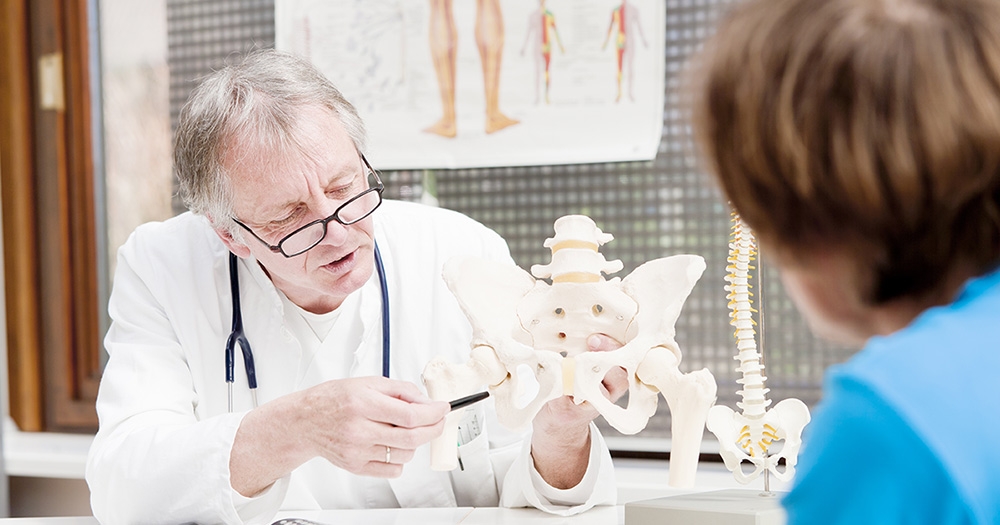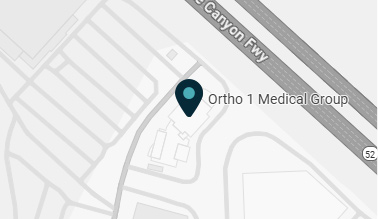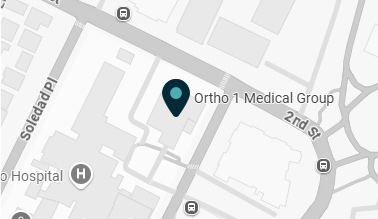If you’ve been experiencing hip pain and are wondering whether a total hip replacement could help, you’re not alone. Every year, over 450,000 American adults undergo this surgical procedure, which replaces damaged hip joints with a prosthetic.
At Ortho 1 Medical Group in San Diego, La Jolla, Chula Vista, and Coronado, California, our board-certified orthopedic surgeons specialize in total hip replacement surgery to give our patients improved hip function while restoring their quality of life.
Keep reading to learn more about total hip replacements and the signs it could be time to consider this surgery.
About total hip replacements
Your hip has a ball-and-socket joint, and it’s one of the largest joints in your body. The surfaces of bone in the joint are covered with a smooth tissue called cartilage, which cushions the bones and helps them to move easily, and a thin, fluid-filled membrane.
This membrane, called the synovial membrane, provides lubrication for the cartilage and prevents the bones and cartilage from creating friction when you move. When the cartilage or synovial membrane deteriorates, you experience pain in the hips as your bones rub and wear together in the joint.
Different health conditions can cause the hip joint to wear down, including a hip injury, like a fall or accident. Osteoarthritis is the most common reason for hip joint deterioration, but other conditions, like rheumatoid arthritis or avascular necrosis, also trigger the same issues.
A total hip replacement eases the pain and restores function to the joint. During the surgery, your provider removes the damaged bone and cartilage and replaces them with prosthetic components.
Signs it’s time to talk to a provider about hip replacement
If you’re concerned about the health of your hip, it’s always best to schedule an appointment with a joint replacement specialist, like the providers at Ortho 1 Medical Group.
Our team evaluates your symptoms and health history, and we order any tests and conduct exams to determine the best course of treatment for you.
In the meantime, here’s a look at some of the common signs that mean you’re probably headed toward a total hip replacement:
1. Your hips are (very) stiff
Your hips help you walk, jump, sit, stand, and generally move. When your hip is stiff, it becomes increasingly difficult to complete any physical activity with ease. This detracts from your quality of life, causing you to miss out on or stop enjoying the activities you need to do or used to love.
Fortunately, a hip replacement stops joint stiffness and helps you take care of physical tasks that are necessary, like grocery shopping or going up and down stairs, and start enjoying movement again.
2. You’re in pain — even when you’re not moving
If your hip pain has reached the point when even sitting or lying down causes pain, it could be time to consider hip replacement surgery. This is especially true if your hip pain keeps you from getting a good night’s rest. In this case, hip replacement surgery may be necessary to give you the relief from pain you need.
3. Your hip is injured or damaged
If you’ve injured or damaged your hip somehow, whether from an underlying health condition, a fall, or a traumatic injury, like a car accident, you may need hip surgery to replace the joint. It’s best to consult with a physician as soon as possible, as living with a damaged joint can cause problems that make it more challenging to recover from surgery.
4. Your mental health is suffering
If you’re in pain all the time and missing out on activities and events because of mobility issues, it’s natural that you’ll feel irritable, cranky, or depressed much of the time. If you’ve noticed that your mental health is suffering along with your hips, it’s time to talk to your provider about hip replacement.
5. Nonsurgical treatments aren’t helping
When hip pain and stiffness first start, anti-inflammatory medicines, pain medications, and other conservative options, like physical therapy or massage, can go a long way toward easing your discomfort and improving mobility.
However, when these conservative methods no longer provide enough relief, hip replacement surgery may be the next step. Be sure to talk to your Ortho 1 Medical Group provider if nonsurgical therapies aren’t helping.
If you’re considering total hip replacement surgery or want more information about the procedure, schedule a consultation online or over the phone today with a provider at one of the four San Diego-area Ortho 1 Medical Group offices.





















